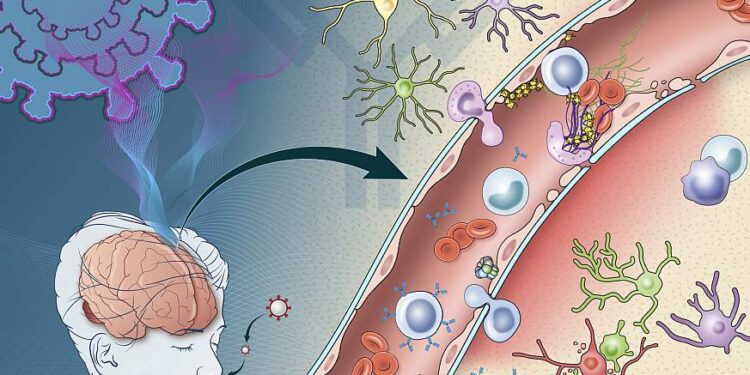Lagatar24 Desk
NEW DELHI: A groundbreaking study conducted by researchers from the Universities of Cambridge and Oxford has revealed that brainstem damage may be the primary cause behind long-lasting COVID-19 symptoms such as breathlessness, fatigue, and anxiety. This research sheds light on the persistent physical and psychiatric effects many patients experience after surviving severe COVID-19 infections.
Using ultra-high-resolution scanners, the research team examined the brains of 30 individuals who had been hospitalized with severe COVID-19 during the early stages of the pandemic. Their findings, published in the journal Brain, highlight the significant impact of SARS-CoV-2 on the brainstem, particularly in areas related to breathing and mental health.
The Role of the Brainstem in Long COVID
The brainstem, often referred to as the body’s “control centre,” plays a crucial role in regulating essential bodily functions. According to Professor James Rowe from the Department of Clinical Neurosciences at Cambridge, “The brainstem is the critical junction box between our conscious selves and what is happening in our bodies.” The ability to observe how COVID-19 affects this region offers new insights into the long-term consequences of the virus.
Rowe emphasized that understanding the damage to the brainstem can significantly help in developing better treatments for long-lasting COVID-19 symptoms.
Abnormalities in Key Brainstem Regions
The study found that several areas of the brainstem, including the medulla oblongata, pons, and midbrain, exhibited abnormalities consistent with neuroinflammation. These changes were observed weeks after patients had been admitted to the hospital, and the affected brain regions were responsible for regulating breathing and other critical functions.
The research team also discovered that these brainstem abnormalities were linked to heightened anxiety and depression among COVID-19 survivors.
Beyond the Effects of Age and Gender
Dr. Catarina Rua, one of the study’s lead researchers, pointed out that the brainstem damage observed was “over and above the effects of age and gender” and was more pronounced in patients who had experienced severe COVID-19. This discovery adds a critical dimension to understanding why some individuals experience prolonged symptoms after recovering from the infection.
Implications for Other Brain-Related Conditions
The researchers believe that their findings may have broader implications for understanding other neurological conditions that involve brainstem inflammation, such as multiple sclerosis and dementia. Further studies could help decode the mechanisms behind these diseases, improving treatment options for affected individuals.
This study represents a significant step forward in understanding the lingering effects of COVID-19 and offers hope for developing more effective therapies to address the long-term symptoms experienced by many survivors.







